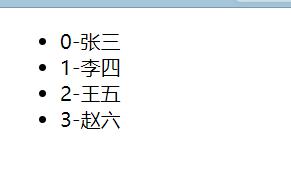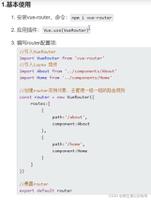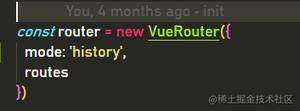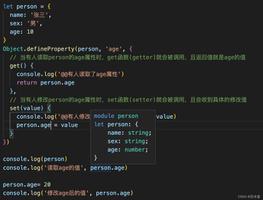通俗理解vuex原理---通过vue例子类比
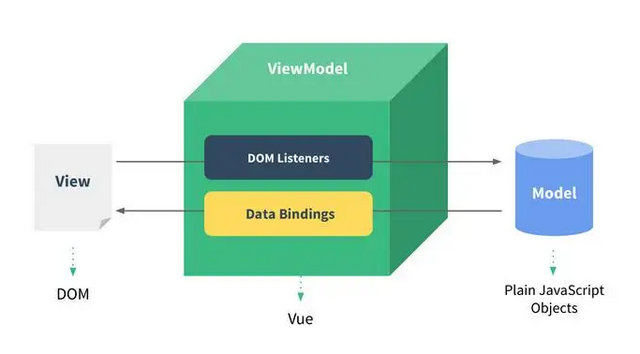
本文主要通过简单的理解来解释下vuex的基本流程,而这也是vuex难点之一。
首先我们先了解下vuex的作用
vuex其实是集中的数据管理仓库,相当于数据库mongoDB,MySQL等,任何组件都可以存取仓库中的数据。
vuex流程与vue类比
我们看一下一个简单的vue响应式的例子,vue中的data 、methods、computed,可以实现响应式。
视图通过点击事件,触发methods中的increment方法,可以更改state中count的值,一旦count值发生变化,computed中的函数能够把count更新到视图。
<div id="app"> <button @click="increment"></button>
{{count}}
</app>
new Vue({
el: "#app",
// state
data () {
return {
count: 0
}
},
// actions
methods: {
increment () {
this.count++
}
},
// view
computed: {
getCount(){
return this.count
}
},
})
那vuex和这个vue响应式例子有什么关系呢?
我们也可以用vuex来实现同样的功能,来实现vuex与vue的类比。
其实原理都是一样的,在vuex中有四个部分:state 、 mutations 、 actions 、getters
类比:
可以先假设没有 actions的情况下:
他们的对应关系是这样的:
更改数据 mutations->methods
获取数据 getters -> computed
数据 state->data
视图通过点击事件,触发mutations中方法,可以更改state中的数据,一旦state数据发生更改,getters把数据反映到视图。
那么action 又是做什么的呢,可以理解是为了处理异步,而单纯多加的一层。要是没有设计上可以没有这一步。
那可能很多人有疑问,dispatch,commit,又是做什么的呢?
是时候拿出这张图了:
在vue例子中,我们触发的click事件,就能触发methods中的方法,这是vue设计好的。而在vuex中则不行了,一定要有个东西来触发才行,就相当于自定义事件on,emit。vuex中的action,mulation通过on自定义的方法,相应的需要emit来触发。
他们的关系是这样的: 通过dispatch可以触发actions中的方法,actions中的commit可以触发mulations中的方法。
我们来看看vuex的示例,来实现vue的同样功能
const store = new Vuex.Store({ state: {
count: 0
},
//state的值只能通过mutations来修改
mutations: {
increment(state) {
state.count++
}
},
//this.$store.commit("increment")触发mutations中函数"increment"
actions: {
increment({commit}) {
commit("increment"); //this.$store.commit("increment")
}
},
//通过getter中的方法来获取state值
getters: {
getCount(state) {
return state.count
}
}
})
export default store
App.vue
<template>
<div id="app">
<button @click="increment">增加</button>
{{this.$store.getters.getCount}}
</div>
</template>
<script>
export default {
methods: {
increment(){
//this.$store.dispatch("increment")触发actions函数"increment"
this.$store.dispatch("increment")
}
}
}
</script>
上面例子中actions和mulations的函数名都是一样的,为了方便理解,我把名字取成不一样的,来帮助大家理解。
更改increment函数名-验证对应关系
通过dispatch-actions ,commit-mutation 找到了他们之间的连接关系
store.js
const store = new Vuex.Store({
state: {
count: 0
},
mutations: {
incrementMutations(state) {
return state.count++
}
},
actions: {
incrementActions({commit}) {
commit("incrementMutations");
}
},
//通过getter中的方法来获取state值
getters: {
getCount(state) {
return state.count
}
}
})
export default store
main.js
import Vue from 'vue'
import App from './App.vue'
import store from './store'
Vue.config.productionTip = false
new Vue({
store,
render: h => h(App)
}).$mount('#app')
App.vue
<template> <div id="app">
<div id="app">
<button @click="incrementClick">增加</button>
{{this.$store.getters.getCount}}
</div>
</div>
</template>
<script>
export default {
methods: {
incrementClick(){
this.$store.dispatch("incrementActions")
}
}
}
</script>
参考资料:
本文的图片来源一篇英文文章:Intro to Vuex,感兴趣的可以去看下。
以上是 通俗理解vuex原理---通过vue例子类比 的全部内容, 来源链接: utcz.com/z/376220.html

